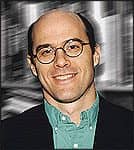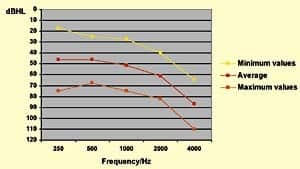
|
The bleak economic news flows out of media outlets like thick black tar while our investments nosedive. The r-word is being used frequently. Yet, there are some good reasons for holding out hope that the hearing industry will go largely unscathed by a recession.
First, some recent history. According to statistics generated by the Hearing Industries Association (HIA), total hearing aids dispensed in the United States during 2007 increased by a modest 2.3%—largely the result of a lackluster 1.2% gain in the second half. Private sector sales (ie, excluding the Veterans Administration) of hearing aids in 2007 were also fairly flat, increasing by only 1.3%. However, it should be remembered that there was a 7.7% increase in sales during 2006—the industry’s largest year-on-year increase in a decade. So, in view of this, the 2007 numbers aren’t bad.
HIA statistics during the last economic downturn (2001-2002) indicate that the overall US hearing instrument market witnessed only a 0.1% decline in 2001 and 1.3% decline in 2002. This brings up an interesting point: the hearing industry has always been fortunate in its resistance to economic downturns—just as it has been somewhat slow to prosper from boom times. Some hearing industry experts have observed that our market appears to be a fairly good bellwether for the general economy; however, the reverse is not necessarily true. One thing I’ve noticed is that, when hearing aid unit sales start to flag, it appears to be a good signal to sell stocks (unfortunately, I’ve never acted on this idea).
I recently came across the January 1958 edition of The Hearing Dealer, the forerunner of Hearing Instruments magazine, in which Editor Robert Edgell gathered predictions from leading figures in the industry. Fifty years ago, the country was also experiencing the start of a recession, and people were feeling the same trepidation about the coming year as some of us view 2008. Roy Stutz of the Audiovox hearing aid company said:
It is no secret that our business is somewhat unique in that it seems to resist [economic] stimulus as much as it resists negative influences, which occur periodically in a fluctuating economy. Periods of high-level prosperity do not exactly hurt us, to be sure; nevertheless we rarely benefit from them to the same degree as do other industries. This same phenomenon persists during times of recession which, if severe, may all but paralyze cities like Detroit or Gary without affecting local hearing aid distributors nearly as much.
Ontarion President Leland Rosemond, who was a pioneer of eyeglass hearing aids and one of the founders of the Hearing Aid Industry Conference (now the Hearing Industries Association), said:
[In light of a possible recession] if we take the year 1933 as an example as to what can be done, we know that, by proper engineering, designing, and merchandising of hearing aids, they can be sold during periods of decreased business activity and that actual sales increases can be secured…I do not personally believe our economy, which shows signs of leveling off, will adversely affect the sale of hearing aids if we approach our problems realistically during the year 1958. (More comments are found in the January 24, 2007 edition of HR’s weekly e-newsletter, The Insider.)
So this idea of the hearing industry being more recession-proof than other industries is not exactly new (incidentally, the two men were proven correct, as the 1958 recession didn’t appear to affect hearing aid sales). According to 2006 HR Dispenser Survey data, more than half (55%) of all dispensers’ customers are age 65 or older, and about two-thirds (65%) are retired or unemployed. Thus, it’s likely that our core customers, who have a greater reliance on fixed income and safer investments, keep our annual unit sales fairly stable. Additionally, the nature of hearing aids is somewhat unique; once people go through the typical 7 years of denial and actually accept that they need the devices, many then view them as a health-related (or independent-living) requirement as opposed to a discretionary spending item.
Is the hearing industry recession proof? Of course not. But assuming that the nation experiences (at least) a short recessionary period that crimps, but does not cripple, the fixed earnings of the nation’s 65+ year old population, it’s reasonable to predict that hearing aid sales will continue to hold their own in 2008. And, should the overall economic prospects of the nation miraculously improve, one might expect an increase in hearing instrument volume that approaches that of 2006.
Karl Storm
Editor-In-Chief





